Download Smartglass Brochure
spaces that adapt to users’ needs at the flick of a switch.
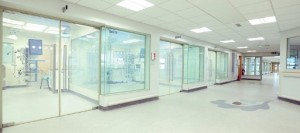
Scientists at the University of Edinburgh have discovered a link between MRSA prevalence in large city hospitals and the spread of infection to smaller community medical facilities
A study by scientists at the University of Edinburgh identified that, in the main, MRSA infections started in larger general hospitals, before being spread around smaller hospitals and community facilities as patients were discharged or transferred.
For example, researchers traced the bug from a large city hospital in London to smaller units across the South East. Similarly, the infection shifted from Glasgow in the west of Scotland to the East of the country.
Lead researcher, Dr Ross Fitzgerald of The Roslin Institute at the university, said: “The high levels of patient traffic in large hospitals means they act as a hub between patients, who may then be transferred or treated in regional hospitals.”
The scientists looked at the genetic make-up of more than 80 variants of a major clone of MRSA found in hospitals. Known as EMRSA-16, this clone is the most common type of MRSA identified in the UK and only occurs in hospital settings. The investigators estimated it had been around on UK wards for some 35 years, and they identified mutations and genetic elements that may have allowed it to spread within hospitals.
The high levels of patient traffic in large hospitals means they act as a hub between patients, who may then be transferred or treated in regional hospitals. They made the discovery about its transference into the community by tracking movements using this genetic code as a tag.
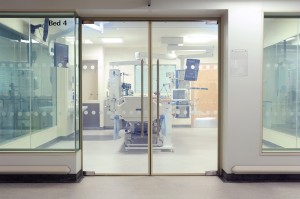
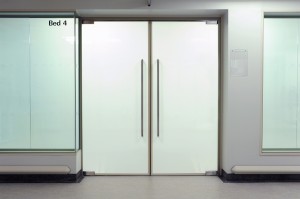
This knowledge may now enable the development of new ways to prevent the spread of MRSA, and a number of other potentially-deadly healthcare associated infections. For example, patients could be screened and treated for MRSA before transferring from one hospital to another. This is currently not universal policy, although most patients are swabbed before being admitted to hospital for a planned medical or surgical procedure.
Dr Fitzgerald said: “This is the first time we have had genetic evidence for the spread of MRSA, and if we can identify the transmission routes, we can take steps to prevent spread.”
Health Protection Agency clinical scientist and co-author of the paper, Dr Angela Kearns, added: “This type of information is important to help us develop policies to improve public health.”
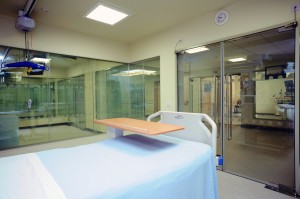
LC SmartGlass is the ideal solution for hospital interiors as it creates a safe environment, protecting patients from HCAI’s whilst at the same time preserving a high degree of patient dignity by way of privacy control.
Through continued studies it has been proven that sheer, easily cleaned surfaces are essential in hospitals in order to reduce the risks associated with the spread of “super bugs” such as CDIFF and MRSA. LC SmartGlass provides the ideal solution offering a sheer, easily cleaned surface to replace traditional blind systems which are often difficult to clean and high risk in terms of harbouring dirt and bugs. This greatly facilitates the deep cleaning process as a considerable amount of time is saved compared to traditional cleaning techniques.
Using a minute electrical current, users can immediately switch the LC SmartGlass from clear to private (opaque) and vice versa. LC SmartGlass can be manufactured and supplied to suit varying healthcare requirements such as fire rated, x-ray proof and impact resistant. When the electrical supply is switched on, the liquid crystal molecules align and incident light passes through and the LC SmartGlass panel instantly clears.
“This is one of the most carefully designed intensive care units in the country. It gives patients and their families the reassurance that they are receiving the best possible treatment in the most modern of settings, with the latest equipment and the most highly trained staff”
“Our first objective is the patient. The new unit has been developed to ensure that they have the benefit of the very best ICCU service that is available anywhere in the NHS”
Dave Mc Nicholas, ICCU manager
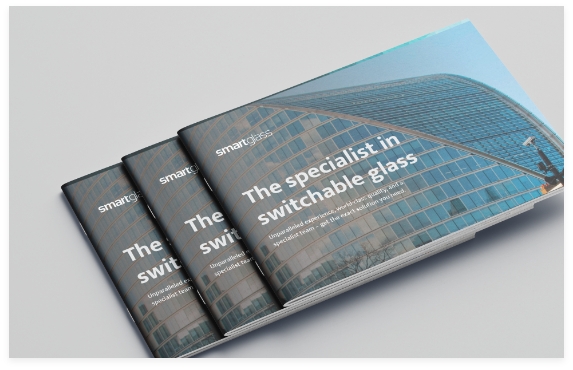
Wherever you are in the world one of our team will be in touch to advise on the best smart glass solution for your needs.